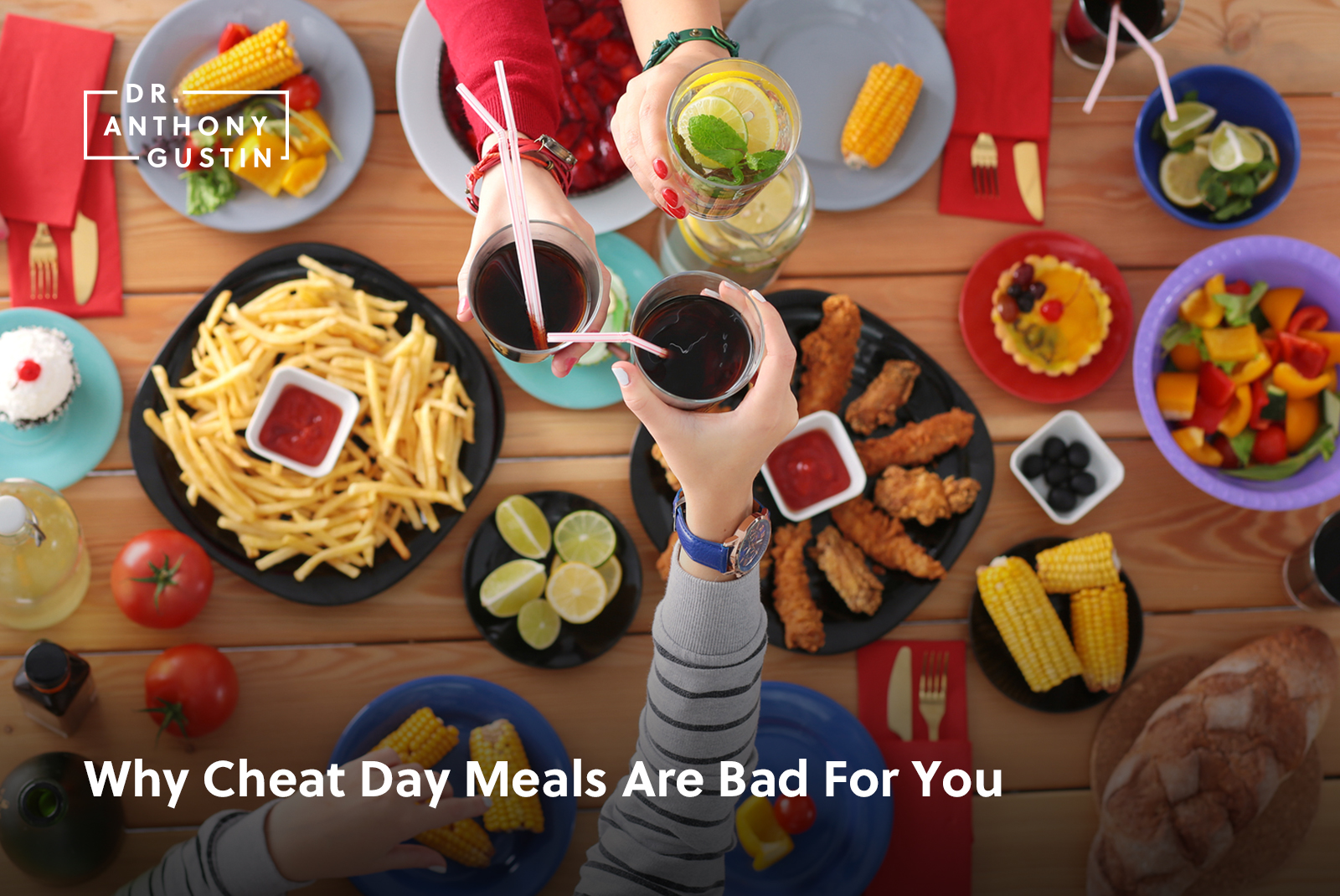It’s always great to see and hear about people striving for proper nutrition and a healthy lifestyle. However, something I will never understand is planning to eat “cheat day meals”. You don’t cheat on your food. What you eat is different from your significant other, an exam, a poker game, or your taxes.
For those of you who are not familiar with the concept, let’s discuss what a traditional cheat meal is. An individual eats what they perceive as healthy for a certain period of time. Then, for a variety of reasons, they plan to eat destructive nutrition at a specific time or for a specific reason. Let’s explore a few reasons that this is a backwards pattern that impedes achieving health goals.
Planned Cheat day Meals
What if it comes time to “cheat” and you aren’t even craving the junk you’re about to shovel in your pie hole? Planning on the meal will likely mean you will have the meal regardless of whether you’re experiencing the craving. If you are craving something and cannot get past the craving, then eat it. The negative psychological effects of telling yourself that it is a “cheat” will last. As long as “cheat” meals are part of your lifestyle, you will never fully leave a lifestyle involving those foods. There are too many negative connotations with cheating.
It is not a cheat day meal, it is a consequence. Something happens in your body as a response to something you ate, positive or negative. Planning to have a negative reaction in your body is just consciously making a poor decision.
Refeed Days
Some people plan meals diverging from their diets as “refeed” days. The principle behind this logic is as follows: if you are eating too few calories (but, calories don’t matter, remember?) increasing calories (or sometimes, more specifically, carbohydrates) once per week can balance hormonal stressors. Although the science behind this idea may be sound, (there is research supporting cyclical ketogenic diets), varying your carbohydrate intake does not provide a free pass to the trough. Are you telling yourself that candy, cookies, cakes, pastries, beer, etc., are acceptable refeed foods?
There are proper and healthy ways to increase calories (if that is still your thing) or carbohydrates. You can have a refeed if it helps you for your particular goal. However, that does not excuse eating junk. If you need to eat more calories/carbohydrates, use whole healthy sources like sweet potatoes, white rice, and other similar foods to achieve the same result.
Inflammation and Gut Health
One of the main reasons to avoid consuming grains is the massive onslaught of inflammation they cause in the body. The anti-nutrients in grains (yes, all grains, not just gluten) rip little holes in the gut like chainsaws which let undigested food particles into your bloodstream. This leads to food intolerances, inflammation, and autoimmune conditions.
These holes in your gut take, on average, seven days to heal. If you are eating a standard once-per-week cheat meal, your gut is continually damaged and you are constantly overloading your system with inflammation and possible autoimmune symptoms. Don’t dirty up your clean eating and go and eat donuts and pancakes because you think you deserve a cheat. You’ll be playing catch up for the whole next week.
Addictive Properties
A common goal in adhering to a healthy lifestyle is breaking previous negative habits. Science has proven how addictive sugar can be. Recent studies suggest refined sugar is more addictive than cocaine.
If you were dependent on drugs or alcohol, a planned relapse on a weekly basis wouldn’t even be considered, so why is this the case with nutrition? If you are attempting to break a habit, then do it. Feeding current addictions will sabotage your ability to completely dismiss them.
What does it mean?
If you want eat something, eat it. If you consider the food a “cheat”, you already understand there will be resulting negative ramifications, so deal with them appropriately. Realign your thinking from a “cheat” to acknowledge you are making an informed choice to look, feel, or perform slightly worse than would without eating that particular food. Using words as negative justifications for your poor diet choices will lead to guilt or lack of adherence down the road. Use your food for positive consequences, not negative ones.
Prioritize your meals and work from there. Is your priority fat loss or building lean tissue? That’s a different diet than if your priority is eating tasty treats with friends and family. You get to decide whether the negativity of whatever you’re eating or drinking is worth the trade off. Not everyone’s goal is to be in the single digits for body fat percentages or feel like they have optimal health at all times, and that’s okay. Quit rationalizing and be honest with your priorities.
Have you dealt with cheat day meals before? Thinking about removing them after reading this article? Let us know and join in on the comments below! Please share this if you enjoyed the read!
